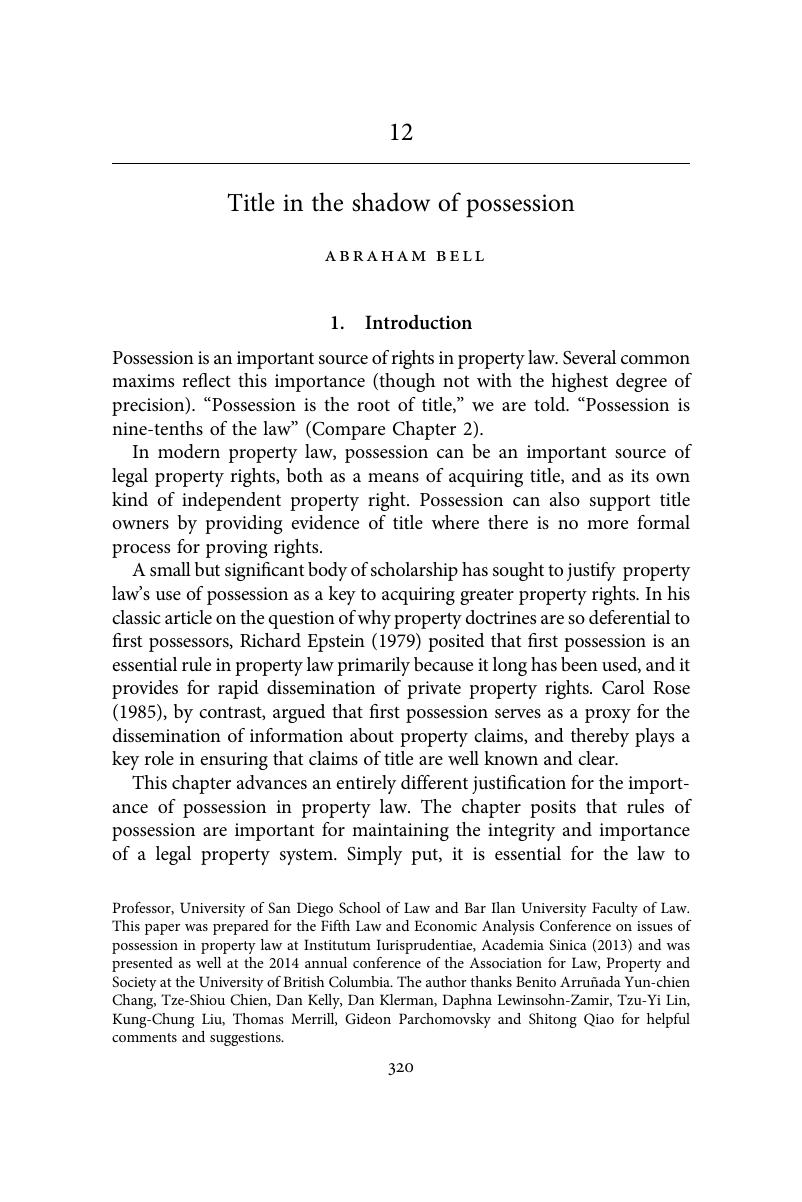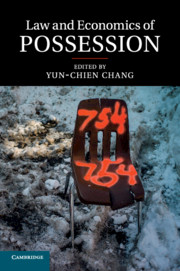Book contents
- Law and Economics of Possession
- Law and Economics of Possession
- Copyright page
- Dedication
- Contents
- Figures
- Contributors
- Introduction
- I Foundation
- II Specific issues
- 9 Possession and licenses: the FCC, weak spectrum rights, and the LightSquared debacle
- 10 Jurisdiction, choice of law, and property
- 11 Small property, adverse possession, and optional law
- 12 Title in the shadow of possession
- Index
- References
12 - Title in the shadow of possession
from II - Specific issues
Published online by Cambridge University Press: 05 May 2015
- Law and Economics of Possession
- Law and Economics of Possession
- Copyright page
- Dedication
- Contents
- Figures
- Contributors
- Introduction
- I Foundation
- II Specific issues
- 9 Possession and licenses: the FCC, weak spectrum rights, and the LightSquared debacle
- 10 Jurisdiction, choice of law, and property
- 11 Small property, adverse possession, and optional law
- 12 Title in the shadow of possession
- Index
- References
Summary

- Type
- Chapter
- Information
- Law and Economics of Possession , pp. 320 - 337Publisher: Cambridge University PressPrint publication year: 2015

